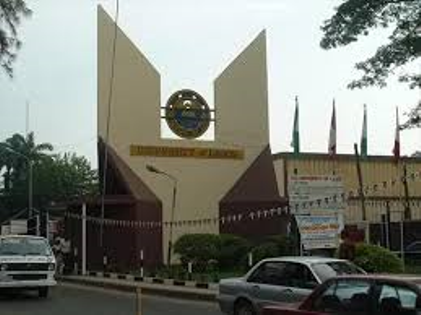The Constitutionality of GEJ’s Emergency Rule in 3 States (II)
Misbau ‘Mislaw’ Lateef
For ease of reference and purpose of understanding, I have decided to start this concluding part of our last week’s discussion on the above subject with the following last paragraph of the first part published last week.
Now, Section 305 of the 1999 Constitution of the Federal Republic of Nigeria provides for the proclamation and imposition of a state of emergency covering the whole country or in any part of it. This section empowers the President to issue a proclamation of a state of emergency by way of official Gazette. It states under sub section (1) that:
Subject to the provision of the Constitution the President may by instrument published in the official Gazette of the Government of the Federation issue a proclamation of a state of emergency in the Federation or any part thereof.
Subsection (3) states that the President shall have power to issue a proclamation of a state of emergency only when:
a. The Federation is at war;
b. The Federation is in imminent danger of invasion or involvement in a state of war;
c. There is actual breakdown of public order and public safety in the Federation or any part thereof to such extent as to require extraordinary measures to restore peace and security.
d. There is a clear and present danger of an actual breakdown of public order and public safety in the Federation or any part thereof requiring extraordinary measures to avert such danger.
e. There is an occurrence or imminent danger or the occurrence of any disaster or natural calamity, affecting the community or a section of community in the Federation.
f. There is any other public danger which clearly constitutes a threat to the existence of the Federation.
g. The President receives a request to do so in accordance with the provisions of subsection (4) of this section.
A dispassionate literal reading of the above provisions will show, even to a lay mind, that there is nowhere in the provisions where the President is empowered to remove the governor of a state or suspend its legislature as a consequence of an emergency proclamation. This exactly is the basis of the contention of those who have declared that the preservation by the President, wittingly or unwittingly, of such democratic institutions in spite of the emergency proclamation, is a constitutional master stroke that will eventually strengthen our constitutional democracy.
To further buttress their position, this group contends, and convincingly so, that the Nigerian 1999 Constitution by clearly providing elsewhere for the manner and circumstances under which the governor of a state may be removed or its legislature suspended, has clearly foreclosed any other manner or circumstances including but not limited to a circumstance of an emergency proclamation.
The above position is further reinforced by the elementary principle of a written constitution with respect to certainty and the need to adhere strictly to its tenor, particularly where no ambiguity can be attributed to its clear provisions. In other words, sections 11 (4) & (5), 188, 189, 109 and 110 of the 1999 Constitution clearly provide for closed circumstances that may warrant the removal of a governor or suspension of the legislature and no other extraneous circumstance not so clearly provided for can be imputed into it.
Whilst section 11 (4) clearly provides that only when the house of assembly of a state could not perform its function may it be suspended and had its functions performed by the National Assembly (through the House of Representatives), sections 188, 189, 109 and 110 variously provide that elected public officers can only be removed either by impeachment by the state house of assembly; death; ill-health or resignation. Indeed, it also an elementary canon of interpretation of statute in law that the express provision for something ordinarily excludes others.
Thus, while the position of those who supported what has now become President Jonathan’s variant of emergency proclamation (recal that precedents on emergency rule in Nigeria support total dismantling of democratic institutions) may be clearly and squarely located in the above cited provisions of the Constitution, it is difficult to locate any constitutional basis for the argument of those who argue that the President out to have made the emergency proclamation ‘complete’ by removing the governors and suspending the legislatures. It is shocking to find that even lawyers who ought to understand the elementary tenets of a written constitution and hence constitutional supremacy also join in the milieu of clearly ignorance elevation of some nebulous and purported ‘philosophy’ or ‘jurisprudence’ on emergency over and above clear provisions of the Constitution.
Since those who argue that the declaration was incomplete unless and until the democratic institutions are dismantled have no any clear and unambiguous constitutional provision to back their proposition, it is crystal clear therefore that the other group whose positions are backed by sound, clear and unambiguous provisions of the Constitutions is right.
The President is therefore right in not using the emergency proclamation as an excuse to exercise powers the Constitution has not granted him- removal of the governors and suspension of the legislatures. If the Constitution had anticipated or contemplated any such powers for the President, it would have expressly provided so. In any event, there are no exactly convincing arguments on how the retention of the democratic institutions will impede or hinder the martial regime necessitated by the emergency proclamation. If anything, what has played out so far in the affected states have shown nothing but collaboration with the military authorities by the Governors.
It must be finally noted, however, that this piece has deliberately overlooked the now plausible argument elsewhere that the details and consequences of the emergency declarations (i.e. utilisation of state allocations and control of governor and etcetera by the President) subsequently laid before the National Assembly by the President has eventually made nonsense of the initial decision not to remove the governors or suspend the houses of assembly. That is a matter for another topic and day!
Established in March 2013, JarusHub is a Nigerian information hub with focus on career and management. It is rated Nigeria's most authoritative destination for online career resources. It parades an array of Nigerian professionals who share their career experiences with a view to bridging career information gap and mentoring a generation to success. Whether you're a student, a recent graduate or an established professional, or even an executive, you will always find something to learn on JarusHub. All enquiries to jarushub@gmail.com or 0808 540 4500. Facebook: www.facebook.com/jarushub; Twitter: @jarushub or @mcjarus.
Let us have your say by leaving a comment belowCancel reply
Recommended For You
-
Differences between GMAT and GRE
April 12, 2018 -
COMPANY REVIEW: AKINTOLA WILLIAMS DELOITTE
March 14, 2018 -
SUNDRY QUESTIONS & ANSWERS ON COURSES OF STUDY (V)
October 28, 2015






